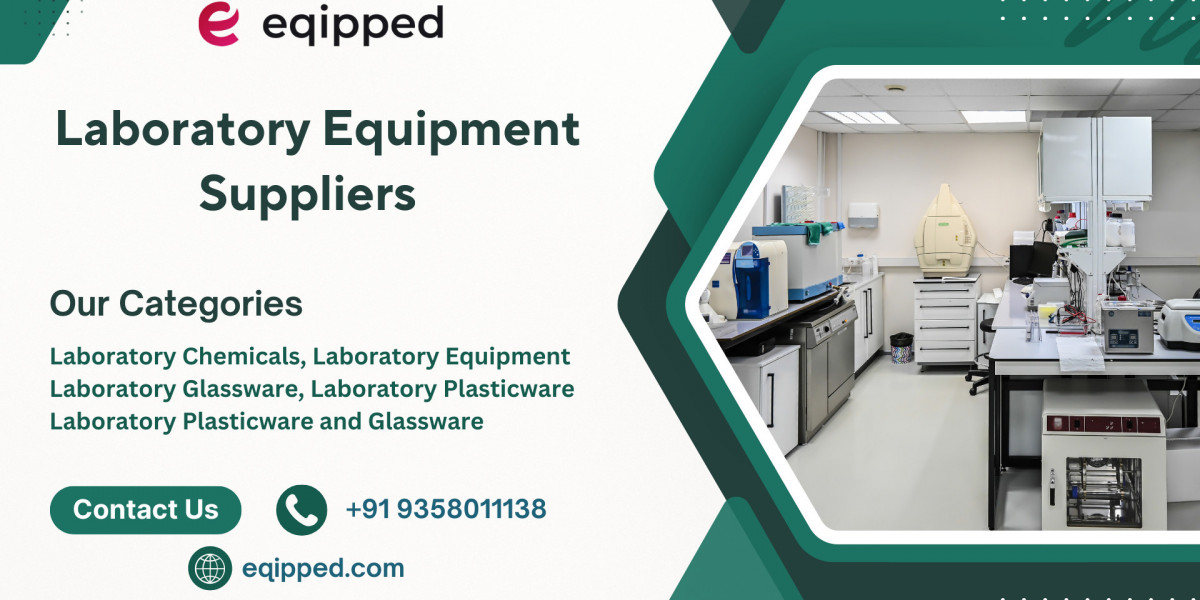When it comes to equipping laboratories—regardless of whether it's for education, diagnostics, research, or industrial settings—choosing the right labware is key. Laboratory plasticware and glassware each offer unique benefits. Choosing wisely can enhance accuracy, safety, and cost-effectiveness in your lab.
At Eqipped, our Laboratory Plasticware & Glassware category combines the best from both worlds—empowering labs with high-quality solutions tailored to every need.
Plasticware: Practical, Safe & Efficient
Enhanced Safety
Plasticware won’t shatter, making it ideal for environments where breakage is a concern, such as student labs or high-throughput settings.Lightweight & Ergonomic
Easier to handle than glass, plasticware is ideal for repetitive or heavy-volume tasks.Cost-Effective & Flexible
It offers options for both disposability and reuse, making it a smart choice where consumption is high.Chemically Compatible & Sterilizable
When made from materials like polypropylene (PP), plasticware withstands many common laboratory chemicals and is suitable for sterilization processes.
Glassware: Precision, Stability & Clarity
Superior Heat & Chemical Resistance
Glassware can handle high-temperature tasks and resist corrosive reagents—essential for rigorous scientific processes.Precision Measurements
With clear markings and high transparency, volumetric glassware offers unmatched accuracy for titrations and analytical work.Longevity & Reusable Design
Though costlier initially, glassware's longevity and cleanability deliver greater value over time.
Side-by-Side Material Comparison
| Feature | Plasticware | Glassware |
|---|---|---|
| Safety | Break-resistant & safer | Fragile; risk of breakage |
| Weight | Lightweight and ergonomic | Heavier and more delicate |
| Cost | Budget-friendly | Higher initial cost, reusable long-term |
| Heat Resistance | Limited | Excellent thermal stability |
| Chemical Resistance | Variable (depending on plastic) | Highly resistant |
| Measurement Precision | Moderate | High precision |
When to Use What
Choose Plasticware for daily, high-volume tasks where efficiency and safety matter more than maximum precision.
Choose Glassware for applications demanding high accuracy, chemical resistance, or thermal stability.
Maintenance Tips
For Plasticware:
Stick to materials like autoclavable polypropylene when sterility is required.
Discard items showing signs of wear, such as scratches or clouding, to prevent cross-contamination.
For Glassware:
Handle gently and inspect for chips regularly.
Avoid abrupt temperature changes to prevent thermal cracking.
Clean using gentle detergents and soft tools; store carefully to avoid damage.
FAQs: What Labs Need to Know
Q1: Can plasticware be used for heated experiments?
Only if it's made of high-temp-resistant plastic like polypropylene—and even then, you must confirm its tolerance level before heating.
Q2: How long do glassware items typically last?
With excellent care and regular inspection, glassware can last for years, delivering long-term cost savings.
Q3: Should I exclusively use one material to simplify purchasing?
Not necessarily. A strategic mix—plastic for safety and convenience, glass for precision and heat resistance—serves most lab needs best.
Q4: Are plastic containers prone to chemical leakage?
Some plastics may interact with certain solvents. Always check compatibility before using them with strong or volatile chemicals.
Q5: What’s the preferred sterilization method for each?
Glassware typically withstands heat sterilization (like autoclaving); some plastics tolerate it too, but confirm based on material type to avoid damage.
Final Thoughts
Smart labs don’t choose between plasticware or glassware—they choose the right tool for the right job. At Eqipped, our Plasticware & Glassware collection supports efficient, safe, and precise lab operations—no matter your facility type or scale.








